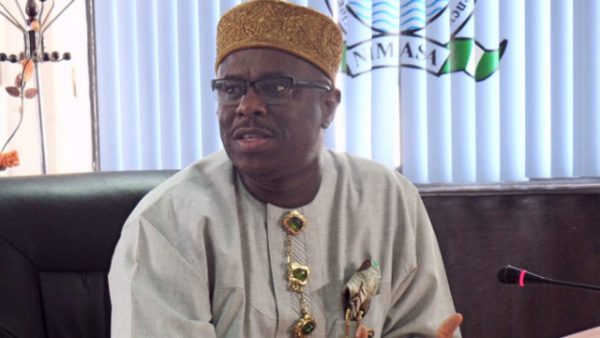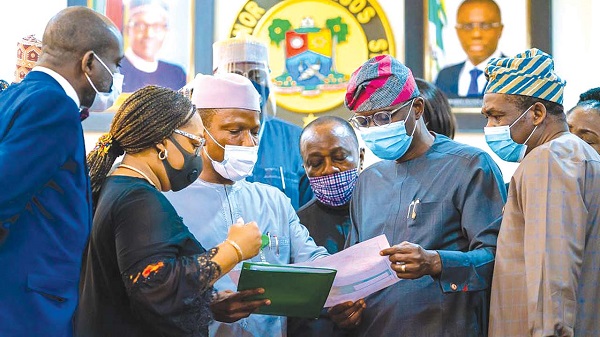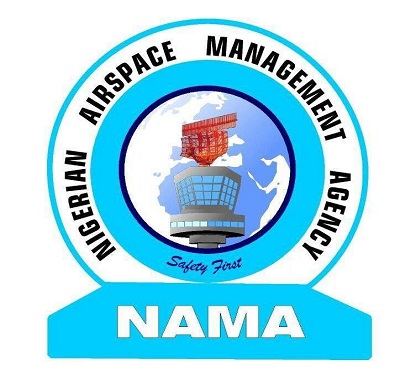Nigerian waters remain high risk for criminality, says report

NIMASA disagrees, says waters are safe
A new report by Protection Vessels International (VPI), has described Nigerian waters as being risky for vessels with high level of criminality perpetrated by pirates and kidnappers.
The PVI in its report stated that: “Nigerian waters remain high risk for criminality. Crew and vessels are vulnerable to opportunist thieves at anchorage and more sophisticated kidnap for ransom attacks, which typically occur 10 – 150 nautical miles off Nigeria’s coastline. Pirates are often armed and violent, and there is precedent for attackers to persist when under attack from armed security teams until they have been injured or killed.”
But the Director-General of the Nigerian Maritime Administration and Safety Agency (NIMASA), Dakuku Peterside, disagreed, and insisted that piracy and other maritime crimes have reduced drastically in the nation’s maritime domain, making it safer for investment. The VPI Weekly Maritime Security Report cited three cases that happened in Lagos, and Onne, Nigeria between May 3 and 7, where robbers boarded vessels, but the attacks were aborted, even as it also bemoaned the piracy in Ecuador, United Arab Emirates, and Cabo Pasado.
It said: “On May 3, two robbers boarded a tanker and were spotted by crew near the cargo tank at 0110 hrs local time. The crew raised the alarm and the robbers fled with their hose. Nothing was reported stolen.
“On May 5, an unspecified number of robbers boarded and attacked a heavy lift carrier at about 1200 hrs local time, some 90 nm southwest of the Port of Brass Oil Terminal in the Gulf of Guinea. The robbers approached the lift carrier on a tugboat they had hijacked hours earlier in the Gulf of Guinea.
“Crew on duty spotted the robbers, sounded the alarm and mustered in the citadel. The robbers demanded the crew give up their valuables and fired through a small hole into the citadel, but no injuries were reported. Authorities received the ship’s distress call and deployed a NATO vessel to the area, freed the vessel and arrested the robbers. Vessel and crew were reported safe and were escorted to the port.
“On May 7, two robbers boarded a supply vessel at about 0245 hrs local time at Federal Ocean Terminal of Onne port. The robbers used a canoe to approach the supply vessel. Crew on duty spotted the robbers and sounded the alarm. The robbers escaped upon hearing the alarm. No goods were reported stolen. Crews were reported safe,” it stated
But Peterside, while defending the agency’s budget before the Senate Committee on Maritime Transport, in Abuja, reiterated that efforts being put in place by the Federal Government to tackle maritime crimes were now yielding results.
He said: “You are aware of all the measures we are putting in place to take the Nigerian maritime sector where it belongs and when you look at the multifaceted approach of the Federal Executive Council’s approved deep blue project, which covers every aspect of maritime security, you will realise that a lot has been done to get us to this stage.”
Besides, he noted that recent rating by the International Maritime Bureau (IMB), indicated that the Nigerian waters are now safer and has further boosted investors’ confidence in the sector both locally and globally.IMB, in its first quarter (Q1) 2019 report said the Nigerian maritime domain recorded no vessel hijack in the period under review, the first in 25 years since Q1 1994.
During the period, the report also said there was a decrease in piracy incidents, compared to the same period in 2018.“Statistics do not lie, and so when the IMB came up with the report of our waters being safer, we were not surprised because we know the level of work we have done with the support of the Federal Government to ensure that the Nigerian Maritime sector becomes an haven for investors,” Peterside stated.
He noted that all these had been achieved through collaboration driven by NIMASA, working with other relevant agencies of government, even as he added that the Agency will continue to up its game to ensure Nigerians benefit from the enormous potential in the sector.
This comes as the United Nations Office on Drugs and Crime (UNODC), estimated that about $771 million is lost to piracy and other maritime crimes in the Gulf of Guinea yearly.UNODC spokesman, Sylvester Atere, said the economic losses were in addition to human cost associated with piracy, kidnapping and armed robbery a sea.
Throwing its weight behind the anti-piracy bill, which is currently with the National Assemble, Atere said the agency has been working with Nigeria and other international partners since 2015 to stave off the threat of piracy and maritime crime through capacity building, fostering interagency cooperation and strengthening the legal and policy framework.







